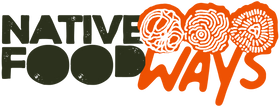Country
We care for Country.
Every decision we make as an enterprise considers how the lands, waters, and skies are affected. As well as all animals and people.
On the most practical day to day level this means:
- We use Diamond Energy for our electricity. They are the number one ranked electricity provider according to Greenpeace's Electricity Guide. We pay extra to have 100% Greenpower. Choosing Diamond Energy over the next best competitor, Momentum Energy, and paying extra for fully green energy, costs us about $2,000 extra a year. We put our money and our resources where our mouth is.
- We use Red Energy for our gas. They are the highest rank gas provided in Greenpeace's Electricity Guide (Powershop is higher but they only do electricity and gas together, and we wanted Diamond Energy for electricity). We pay extra for carbon neutral gas. We are working on moving to fully electric cooking and baking (we inherited some equipment we need to use right now).
On a larger scale, the native foods we grow and source have a beneficial impact on the environment as they grow. Most of the farmers and foodmakers we work with are healing Country in some way. Practicing Indigenous and/or regenerative farming practices.
On a systemic level, we're meeting with ministers, policy makers, investors, and philanthropists to increase support for the First Nations led native food system. The growth of this system will have a major impact on the wellbeing of Country. While producing tasty and health food, it will also regenerate soils, capture more carbon, and reduce the impacts of wildfires, floods, and droughts.
Culture
We care for Culture.
We practice and strengthen First Nations ways of knowing, doing, and being. This is true in the way we organise ourselves; the way we collaborate with others; and the way we grow, harvest, process, bake, cook, and share native foods.
First Nations people of this great Southern Continent have the oldest continuing cultures in the world. This includes harvesting, farming, processing, baking and cooking cultures. By practicing First Nations farming and food preparation, we are enlivening our cultures. We are constantly learning from Elders about ancient techniques and developing new ones full of cultural meaning and adapted to our climate.
Community
We care for Community.
83.3% of Native Foodways is First Nations owned. Our constitution ensures the social enterprise will always be at least 80% First Nations owned. Non-Indigenous people, investors, or companies can only own up to 20% of the company. A key reason for this is to allow for non-Indigenous wealth and investment (made from First Nations land) to support the growth of our social enterprise and increase the speed and depth of our impact.
90% of Native Foodways paid employment (in terms of hours worked) is from First Nations people. We have two full-time First Nations team members (Corey Grech and Cassidy Watts) and one part-time non-Indigenous team member (Mickey Kovari). The rest of the First Nations board directors volunteer their time each week. That's Carla McGrath, Cristilee Houghton, Jason Glanville, and Lachlan McDaniel. 83.3% of our board is also First Nations, making us First Nations led.
Our aim is to increase First Nations participation, leadership, and ownership in the native food system. We do this directly through employment in our social enterprise. As well as indirectly by stimulating First Nations employment and business development in our supply chain. In the past 12 months, we have sold over $100,000 worth of products made by First Nations farmers and foodmakers. We hope to grow that tenfold in the next 12 months.
We also help out when there is a crisis. During the 2022 floods. Our team jumped in a van and drove to Lismore to hand out free native pies and make free coffees for as many people as possible. We shared over 2,000 pies and 1,000 coffees. We were able to do this because of the wonderful support of our community partners and everyday customers/friends.
There is much more to our impact. We are developing an annual impact report that will share lots more about all the work we're doing. Get in touch to find out more and to partner with us on revolutionising the native food system.
